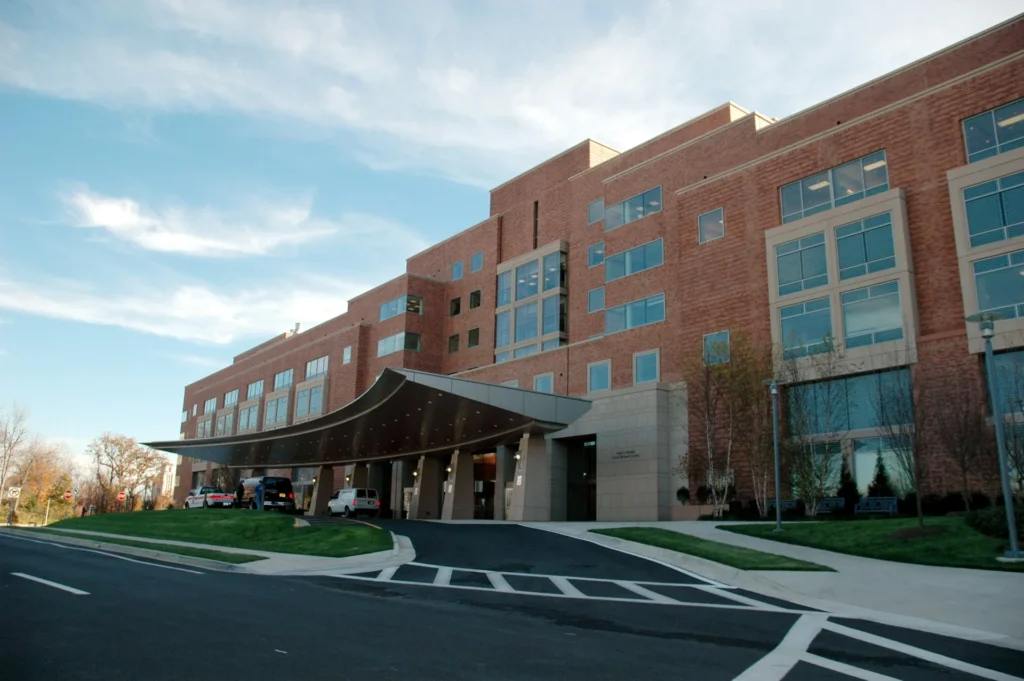If you’ve ever wondered what it’s like working in different types of hospitals, you’re not alone. For travel nurses and allied professionals, every contract brings something new: different settings, patient populations, and opportunities to grow your career.
From small-town hospitals that feel like family to massive urban medical centers buzzing with specialists, each type of facility offers unique benefits. Whether you’re exploring Travel RN’s or looking into travel allied health careers, it helps to know which kind of environment might be the best fit for your lifestyle and career goals.
Exploring the Different Types of Hospitals for Travel Professionals

When you start working travel contracts, you’ll quickly realize that no two hospitals operate the same way. Understanding the different types of hospitals can help you choose assignments that align with your strengths and preferences.
While hospitals can be categorized in many ways — by ownership, size, or specialization, location often makes the biggest difference in your day-to-day life. Working in a rural hospital feels completely different from a big-city medical center, both in pace and in patient care.
Rural Hospitals: Community-Focused and Hands-On
What Defines a Rural Hospital
Rural hospitals are usually smaller facilities located outside of major metropolitan areas. Many have under 100 beds and serve as the main healthcare provider for their surrounding communities. Some qualify as Critical Access Hospitals (CAHs), facilities with fewer than 25 inpatient beds located at least 35 miles from another hospital.
Because these hospitals serve smaller populations, they rely heavily on travel professionals to keep things running smoothly.
What It’s Like Working in a Rural Hospital
Working in a rural facility can be one of the most rewarding experiences you’ll have as a traveler. You’ll work in a close-knit environment where everyone knows each other, and your role tends to be broad. Travel nurses here often manage a mix of responsibilities, from acute care to patient education, and allied professionals might find themselves cross-trained across departments.
The pace is steady but rarely chaotic, and your impact is noticeable. Many travelers describe rural hospitals as the kind of place where your work truly matters, not just to the facility, but to the community it serves.
Benefits of Rural Assignments
- A strong sense of teamwork and belonging
- More diverse, hands-on experience
- Lower cost of living and housing
- Opportunities to develop wide-ranging clinical skills
Things to Keep in Mind

Rural hospitals may not have the same level of equipment or resources as larger facilities. Teams are smaller, which can mean more on-call hours, and specialized care may be limited. Still, for professionals who value independence, adaptability, and purpose-driven work, rural hospitals offer unmatched experience.
Common Travel Roles in Rural Settings
You’ll find a range of different types of hospital jobs in these settings, including:
- ER nurses and med-surg RNs
- Respiratory therapists
- Radiology and lab technologists
- Surgical techs and ultrasound specialists
Urban Hospitals: Fast-Paced and High-Tech
What Defines an Urban Hospital
Urban hospitals are found in major cities and often serve large, diverse populations. Many have hundreds or thousands of beds and multiple specialized units. These facilities might also be teaching hospitals, affiliated with universities or research centers.
They’re fast-paced, highly structured environments where collaboration and efficiency are essential. If you thrive on adrenaline and challenge, an urban assignment can be a career-changing opportunity.
What It’s Like Working in an Urban Hospital
City hospitals are where you’ll encounter the most complex cases and state-of-the-art medical technology. You’ll work alongside specialists and medical students while handling a constant flow of patients. It’s a setting that demands focus, communication, and quick decision-making, but also offers unmatched growth.
For travelers, urban hospitals are excellent places to build skills, learn new systems, and expand professional networks.
Benefits of Urban Assignments
- Access to advanced equipment and specialized departments
- Exposure to cutting-edge procedures and technologies
- Great networking and mentorship opportunities
- Strong resume-building experience
Things to Keep in Mind
Urban assignments can come with higher patient loads, tighter schedules, and higher living costs. The pace is faster, and relationships with patients can feel less personal than in smaller facilities. But for many travel professionals, the rewards, professional growth, confidence, and access to specialized training, are well worth it.
Common Travel Roles in Urban Settings
If you’re ready for high-acuity care and complex teamwork, these roles are in high demand in city hospitals:
- ICU and Cath Lab RNs
- Surgical technologists
- CRNAs and nurse practitioners
- Respiratory and imaging specialists
Choosing Between Rural and Urban Assignments
When comparing different types of hospitals, the right choice depends on what you want from your travel career.
If you’re drawn to independence, connection, and a slower pace, rural hospitals might be your match. If you thrive on challenge, variety, and high-level medicine, an urban environment might be the better fit.
Think about what motivates you — smaller communities often provide strong bonds and flexibility, while large hospitals provide cutting-edge experience and stability. Both can be equally valuable stepping stones for travel professionals looking to grow long-term.
How Hospital Type Affects Pay and Benefits
Compensation varies depending on the hospital type, region, and demand. Rural hospitals may offer higher stipends or bonuses to attract travelers to underserved areas, while urban hospitals can provide steady contracts and overtime opportunities.
Before signing any new contract, check out our guides on how travel nursing works and is travel nursing worth it to help you weigh financial and lifestyle factors.
To make sure you’re maximizing take-home pay, don’t miss our travel nurses taxes guide for clear insights on stipends, deductions, and multi-state contracts.
Where to Find the Best Travel Opportunities
Junxion Med Staffing connects healthcare professionals to facilities nationwide — whether you prefer small-town comfort or big-city hustle.
Start with travel med jobs in Oklahoma if you’re looking for welcoming community-based hospitals. Explore travel assignments in Texas for diversity and growth opportunities. Or check out travel assignments in Wisconsin for balanced experiences across both rural and urban settings.
Roles Across Different Hospital Settings

There are many different type of nurses in hospitals, and each plays a distinct role depending on the facility type.
In rural hospitals, nurses often work across multiple units and handle a wide range of cases. In urban hospitals, nurses typically specialize, focusing on one area like ICU, oncology, or pediatrics. Understanding these differences helps you choose assignments that align with your training and goals.
Conclusion
The different types of hospitals you’ll encounter on travel contracts each bring something unique to the table. Rural facilities give you versatility and connection, while urban hospitals push your skills to new heights.
At Junxion Med Staffing, we’ve seen travel nurses and allied professionals grow tremendously by experiencing both. Wherever your next contract takes you, the goal is the same, keep learning, keep growing, and find joy in the work you do.
FAQs About Different Types of Hospitals

What are the main types of hospitals in the U.S.?
The most common types include rural, urban, community, and teaching hospitals. Each varies by size, resources, and patient demographics.
Which type of hospital is best for travel nurses?
It depends on your goals. Rural hospitals are ideal for hands-on, broad experience, while urban hospitals are great for specialization and technology-driven care.
Do rural hospitals pay less than city hospitals?
Not necessarily. Rural hospitals often offer higher incentives or stipends to attract qualified travelers to underserved areas.
What are the most common travel nurse and allied roles across hospital types?
ICU, ER, and Med-Surg RNs are in high demand everywhere, along with surgical technologists, respiratory therapists, and imaging professionals.
Can allied professionals work in both rural and urban hospitals?
Absolutely. Allied health travelers are needed nationwide — and the variety of experience you’ll gain in each setting is invaluable.


 and then
and then